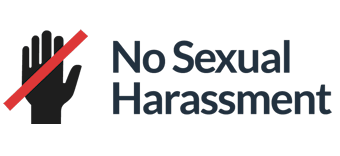
Workplace Retaliation Under California Law
Under California’s Fair Employment and Housing Act (“FEHA”), it is generally unlawful for an “employer or other covered entity” to “demote, suspend, reduce, fail to hire or consider for hire, fail to give equal consideration in making employment decisions, fail to treat impartially in the context of any recommendations for subsequent employment which the employer or other covered entity may make, adversely affect working conditions or otherwise deny any employment benefit to an individual because that individual has opposed practices prohibited by the Act or has filed a complaint, testified, assisted or participated in any manner in an investigation, proceeding, or hearing conducted by the Commission or Department or their staffs.”
“Opposition to practices prohibited by the Act” includes, but is not limited to:
- Seeking the advice of the Department of Fair Employment & Housing or Commission, whether or not a complaint is filed, and if a complaint is filed, whether or not the complaint is ultimately sustained;
- Assisting or advising any person in seeking the advice of the Department or Commission, whether or not a complaint is filed, and if a complaint is filed, whether or not the complaint is ultimately sustained;
- Opposing employment practices which an individual reasonably believes to exist and believes to be a violation of the Act;
- Participating in an activity which is perceived by the employer or other covered entity as opposition to discrimination, whether or not so intended by the individual expressing the opposition; or
- Contacting, communicating with or participating in the proceeding of a local human rights or civil rights agency regarding employment discrimination on a basis enumerated in the Act.
Assistance with or participation in proceedings of the Department of Fair Employment & Housing or Commission includes, but is not limited to:
- Contacting, communicating with or participating in the proceedings of the Department or Commission due to a good faith belief that the Act has been violated; or
- Involvement as a potential witness which an employer or other covered entity perceives as participation in an activity of the Department or the Commission.
There are however, exceptions for “reasonable discipline.” Nothing in the California regulations prevents an employer or other covered entity from enforcing reasonable disciplinary policies and practices, nor from demonstrating that the actions of an applicant or employee were either disruptive or otherwise detrimental to legitimate business interests so as to justify the denial of an employment benefit.
In the 2008 case of Jones v. Torrey Pines, the California Supreme Court held that a supervisor cannot be held individually liable for retaliation under FEHA; the employer company however, can be held be held liable for the supervisor’s retaliation. The court specifically did not address the situation where a supervisor who retaliates based on opposition to his or her own harassment may also be individually liabile for retaliation related to that harassment.
If you believe you are a victim of sexual harassment, discrimination, retaliation or wrongful termination as a result of sex, race, ethnicity, age, religion, medical condition, or because you have opposed illegal activity in the workplace, the attorneys at www.nosexualharassment.com are here to help.
Disclaimer: Reasonable lawyers may differ regarding interpretation of various laws. The viewer should not rely on the statements in this website without consulting an attorney who can then analyze how the law may apply to a specific set of facts. Retaliation may be illegal under Federal law under certain circumstances, but is beyond the scope of this discussion. Please consult an attorney for further information.
For more information about the author, check out Jason Oliver’s Google+ profile.

Leave a Reply
Want to join the discussion?Feel free to contribute!